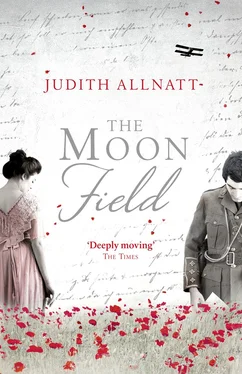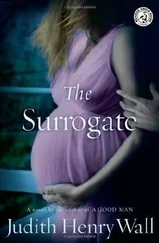1 ...6 7 8 10 11 12 ...23 ‘That’s because she knows you pocket some for your lunch,’ Turland said.
Rooke grinned and shrugged. He took a pack of dog-eared cards from his pocket and shuffled them adeptly, flipping through two piles with his thumbs, cutting and splicing them together and then spreading them out on the table like a fan flicked open and clicked shut again. They decided on pontoon and as they played George took the opportunity to observe his new companions.
Haycock and Turland looked around his own age, eighteen or nineteen, Haycock maybe a little older as he was stocky, wider in the chest and well muscled; he moved with the confidence of a man who works with his hands and knows the strength of his arm. He had fair, crinkly hair that reminded George of the wire wool he used to clean the spokes on his bicycle wheels. Turland, who studied his cards with great seriousness, was a good-looking young man with more delicate features, dark-haired and with brown eyes and an olive complexion that seemed darker than merely the tan of summer. George wondered if there was continental blood in his family.
Rooke, despite his predatory name, reminded George somehow of a mouse: he was so quick in his movements and he was small, surely no more than sixteen, if that, really still just a boy. His hair was slicked to the side, flat to his head, which didn’t flatter him as his ears stuck out rather. His eyebrows seemed always to be raised, giving him a look not so much of surprise as constant alert anxiety, as though he was ready to take off at any minute should something untoward occur.
Rooke had suggested that they play for matches and he soon had a pile of them in front of him, whereas George, who hadn’t been giving the game his full attention, had only three and Haycock, who broke off every now and then to watch the girl collecting the glasses, had not fared much better.
‘It’s Farrell’s round then,’ Rooke said, poking George’s pathetic cache of matches.
‘That’s not hospitable,’ Turland said. ‘He’s a visitor.’
‘It’s all right,’ George said quickly. ‘I got paid today.’ He took out his pay packet from his jacket pocket, slit it open with his thumb and began to pull out a note from inside. There was a lull in the conversation at the table beside them and Haycock leant over and quickly put his calloused hand over George’s, crumpling both notes and envelope back into his fist.
‘Are you daft, man? This isn’t the place to show your money about.’
George, feeling confused, stuffed the money back into his lower pocket and automatically, without thinking, patted his breast pocket where the painting still lay between the covers of his sketchbook. With a sickening jolt, he remembered the humiliation and disappointment of the afternoon and placed his hand flat upon the table as if to keep it in view and prevent it from betraying his feelings.
Haycock stood up, saying, ‘My shout. Same again all round.’ He made his way between the tight-packed tables to the press of men at the bar.
Turland scooped all of the matches back into the centre of the table. ‘You took some off Haycock again,’ he said to Rooke sadly.
Rooke grinned. ‘He’s so easy; he can’t keep his eyes off a bit of skirt.’
‘You’re incorrigible,’ Turland said with good humour.
‘What’s that mean? That another of your newspaper words?’
‘A hopeless case.’
Rooke just laughed.
When Haycock returned with the drinks, George put out of his head the Methodist teachings on the evils of drink that his parents and a lifetime of chapel meetings had dinned into him. He was surprised how easily he did it. He had never taken a drink before, and his only experience of public houses was waiting outside while tracts for the Temperance League were distributed by his mother and a group of chapel ladies. He was anxious not to let his naivety show: even Rooke seemed at home in the bar. How could he have thought that Violet might see him as a man when he lived the life of a boy? He drank fast, as if the golden liquid that he poured down his throat could fill up the empty space inside him where his hopes had once been. They played on and drank more: Rooke was sent up to the bar, grumbling, then Turland went again, refusing to let George take his turn as he was ‘a visitor’ and ‘had got him out of a jam, courtesy of the bike’.
As they played, the conversation among the men around them ebbed and flowed but returned always to the war: the horses being commandeered – what would the brewery do for the dray-carts? The barracks at the castle were filling up with new recruits; since Mons, men were flocking to the country’s aid … they said the Germans were doing unspeakable things; they said someone had heard engines over Cockermouth, Zeppelins spying out the land …
As he listened, George felt an uneasy mixture of excitement and fear. What if the Germans were to come here? It was all very well being an island but what if the navy didn’t hold? He imagined the heavy tread of marching feet through the town. An image from one of the recruitment posters came into his mind: a woman and child at a window, and suddenly the woman’s anxious face was his mother’s and the child clinging to her skirts was Lillie.
His father said it was best to stick to simple principles: ‘Thou shalt not kill’, that all should ‘beat swords into ploughshares’. George knew his own view: that he would protect Mother and the rest of his family with his life. He had heard his father preach at the Convention last year on the text of ‘turn the other cheek’. He imagined how badly such a sermon would be received in this changed world, against a backdrop of flags and posters, and men in uniform on the move, singing en route to the war. A piercing doubt about his father caught him for a moment before he turned its shaft away. Surely, if the enemy were at the door his father too would defend them all – turning the other cheek would be the same as turning your eyes away! Feeling disloyal, he comforted himself with the words he’d heard his father speak to his mother: that it would soon be over, that Europe didn’t have the gold reserves to fund a modern war, that it could only last months and that they should trust in the Almighty.
Turland, who had also obviously been listening in to the conversation of the older men, suddenly turned to Haycock and said, ‘I’ve been thinking of going.’
‘Signing up?’ Haycock stopped playing.
‘Someone’s got to do something, don’t you think?’
‘But you’ve got a good place at the paper. Not like me, poking about in machinery innards all day at the risk of losing my fingers. Now I have been thinking about having a bit of a jaunt. What on earth would you want to go for?’
‘Oh, I don’t know,’ Turland said. ‘I want to do something worthwhile, I suppose, and we’re needed: we can’t let the Germans go striding around Europe picking up countries to put in their pockets, can we?’ He rested his elbows on the table and leaned in. ‘Doesn’t seem honourable somehow to know the army’s in retreat for want of men whilst I’m swanning around covering sports days and grand-opening sales.’
Rooke, who had been quietly gathering more of Haycock’s matches, his voice a little slurred, said, ‘Well, if you’re going, I’m going. We’ll be like the heroes in Valour and Victory . Champions to the rescue!’ He put his hands up in front of his shoulder as if cocking an imaginary rifle, jerked them upwards and threw his body backwards as if taking the recoil. An older man with baggy eyes and a well-trimmed beard twisted round on his stool from the adjacent table saying, ‘Well said, young man; that’s the spirit! Give those Deutschers what for.’
Haycock looked at Rooke sceptically. ‘Harry says they measure you, how tall you are … your chest and what-all before they let you in.’
Читать дальше












